Men have grown tired of liberty
1925-1928

As the scheduled elections rapidly approached it was becoming increasingly obvious that the Centre and National Liberal Parties intended to work with the Left rather than the Right – making the fall of the Right for power almost inevitable. Such a result would see at best Karl von Habsburg become Kaiser, shunting aside the wider goals of the Right, and at worst a restoration of the Socialistic Republic. Neither result could be tolerated. In a bold manoeuvre, mere days before the polls were scheduled to be opened five heavily armed divisions entered Berlin, with similar military operations in several other cities including Vienna, Munich and Cologne. The following morning the military announced that the SED had attempted an armed insurrection in cooperation with other Republican groups requiring a period of martial law and the suspension of elections until the situation had stabilised. In light of the alleged insurrection all Republican parties were pronounced illegal and their deputies expelled from the Reichstag.
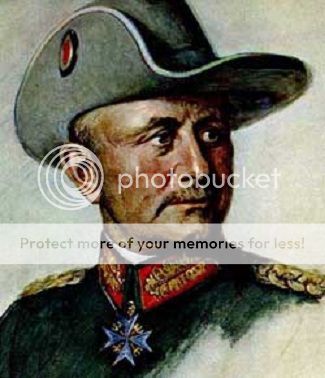
Hindenburg, still reigning Head of State as Regent, appointed a new government headed by the eccentric but pliable General Lettow-Vorbeck. Although a DNVP member, he was not a Reichstag deputy – instead offering a link between the parliamentary Right and their military allies. Lettow-Vorbeck’s new government would include personnel from both the DNVP and DAP alongside a number of technocratic appointments and was largely dominated by the upper echelons of the German Army.

With the new government identifying Germany’s failure to finally establish its form of government after the fall of the Republic in 1920 a new Bill was hastily formed to pass through the Reichstag. Agreeing to coronate the Wilhelm II of Prussia as Kaiser for the second time in his life and to effectively reduce the Reichstag to a ceremonial institution the Bill was passed with an overwhelming majority. Not only did DNVP and DAP deputies vote in favour without question, in the atmosphere of intimidation that followed the military’s seizure of power out of 139 Centre Party deputies and 45 National Liberal deputies just 30 voted against. German democracy was dead.
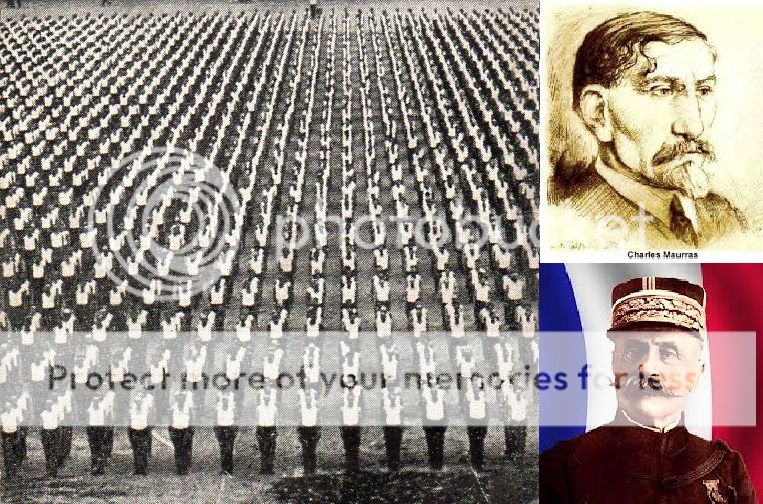
There was of course a very obvious precedent for the kind of regime that appeared to be forming in Germany – just across the Rhine in France. Ten years earlier French democracy had been overthrown in a very similar manner by the military. With government from that date dominated by a military clique consisting of Marshals Petain, Foch and Joffre the regime was vigorously supported by the Anti-Republican Right and was heavily influenced by the Integralist Nationalist ideas of Charles Maurras. In France, there had been an effort to build a new society, without the old divisions along lines of class or political allegiance – in which each and every part of society acted as an integral part of the whole of the nation. For better or for worse, Germany had turned against the ideas of liberty and towards the historic homeland of those ideas which in the new century represented their antithesis.
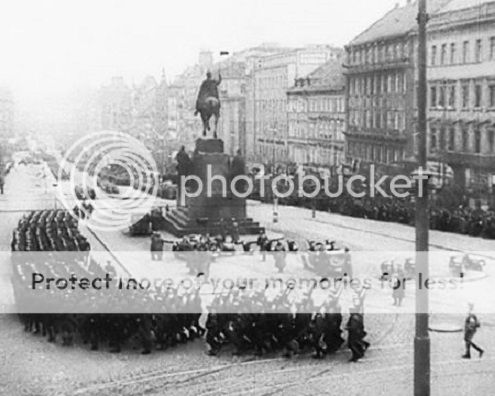
As quickly became apparent, the German Army had set itself no easy task. As Bohemia was formally annexed in July 1925 the country seethed with tension – guerrilla warfare, ethnic conflict and resistance by a wide variety of means meant that a large part of the army had to be permanently stationed in the new territory. At the same time the destruction of the Socialist, Republican and labour movements proved a gruesome task. Although open resistance from the Republican Left had faded away for the most part by the end of 1925 – this had required the execution and internment of many thousands of militants, actions deeply concerning to a nation with so long dominate by Christian Democratic and Liberal ideas. Worse yet, the regime maintained an unmistakeably Prussian character, this despite attempts to involve Catholics and other South Germans, raising traditional regional and religious resentments – especially in light of Karl von Habsburg’s continued residency in Vienna (the ‘King of Austria’ being effectively untouchable due to his vast popular appeal).

In April 1926 the regime made an ill-fated attempt to relax its iron grip upon society and introduce some liberalising reform. A nominally civilian government was restored with a coalition of DNVP, DAP and DNLP ministers led by the new Chancellor, Alfred Hugenberg, replacing Lettow-Vorbeck’s largely technocratic administration. As the new government looked to relax censorship laws, bring an end to martial law and even restore some authority to the Reichstag it rapidly became a disaster for the regime. Republican sympathists remained implacably opposed to the regime, Right leaning Centrists were offended at the failure to include them in the government, Left leaning Centrists at absence of deeper reforms, the Far Right saw Hugenberg’s government as a sign of weakness, the military resented the efforts to reduce their absolute power and the National Liberals seemed determined to push the reforming envelope far further than Hugenberg could possibly allow.
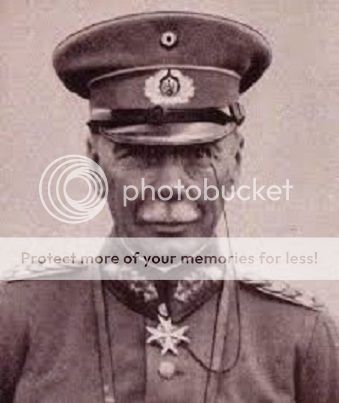
The Hugenberg government did not last for long. In June 1926 the regime was brought down as German Chief of Staff Hans von Seeckt was appointed Chancellor and given the task of forming an unashamedly non-civilian government. Even the DNVP and DAP were excluded from government whilst the regime looked to totally disarm and disband the famous paper hat Fascist militias of the DAP, seeing them as an alternate source of power and therefore a threat to the regime. The Seeckt government would continue to lurch on for almost two years – refusing to fully embrace the totalitarian ideas of the French, nor relax the military’s domination of society in any way.
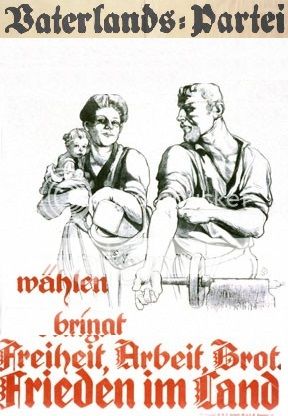
Out of power and in the wilderness, the German Right searched desperately for answers. Dictatorship had failed to bring economic prosperity, it had failed to resolve the ‘Jewish question’ (although Jews had been barred from public office, there had been no property seizures or expulsions as the far right had hoped), it had failed to bring political or social stability and had failed to reinvigorate Germany – instead handing her over to aging Prussian militarists looking wistfully back at the Second Reich. The Right reached the conclusion that what Germany needed was a radical commitment to French style Integralism – a true totalitarian regime. The remains of the DNVP and DAP fused themselves into the German Fatherland Party (DVP) – a party committed to the conservative and religious fascism embodied by France.
As the military regime lurched on its international relations actually improved. Although officially ‘concerned’ by developments in Germany, the British were entirely willing to retain their alliance with Berlin. The French, on the other hand, were influenced by Germany’s shift away from democracy – the new military regime in Germany, although continually expanding its armed forces, appeared far too weak internally to realistically threaten French rule in Alsace-Lorraine and was focussed on its opposition to the Communist states than revanchism. With war between Germany and the Communist states appearing much more likely than war over the Rhine, the French government looked to ease away from its alliance with Scandinavia and towards a more neutral stance with Germany – this was perhaps the greatest flourishing of icy Franco-German relations since the early 1860s!

The Seeckt government was by far the least population administration of German history since unification. Alienating Right, Left and Centre even the upper ranks of the military were deeply divided over its continued existence. The government was simply criminally weak. On May First 1928, on the 30th anniversary of the great May Day demonstrations of 1898 that toppled the Ludendorff dictatorship and facilitated the rise of the Weimar Republic – Germany’s most democratic regime – another major campaign of protest shook Germany. In Berlin, Vienna and Germany’s other great cities hundreds of thousands joined together to march in quiet protest against the regime demanding political reform and an end to dictatorship. Socialists, Republicans, Centrists and Liberals joined openly together in defiance. National Liberal leader Gustav Stresemann proclaimed that the government had lost all legitimacy in the eyes of the people, calling upon the Kaiser to dismiss Seeckt and declared himself ready to take over the Chancellorship and lead a government that would usher in democratic reform. Fearing that the movement might radicalise – sending it into the hands of the Socialists and revolutionaries - if concessions were not made Kaiser dismissed Seeckt and appointed Stresemann as Chancellor, a new provisional government of National Liberal and Centrist ministers being formed.
After long negotiations between the military, the Kaiser and the provisional government it was announced that Germany would go to the polls for the first time in almost a decade. Wilhelm II, exhausted and debilitated from his second spell on the throne, agreed to abdicate as Kaiser, leaving the Imperial throne vacant until the election of the new Reichstag. This assembly was then to be granted unlimited powers to forge a new constitution for Germany – being set a deadline of January 1929 to find agreement. For the third, and final, time in thirty years the German people would be looked to for legitimacy in forming a new German state.







